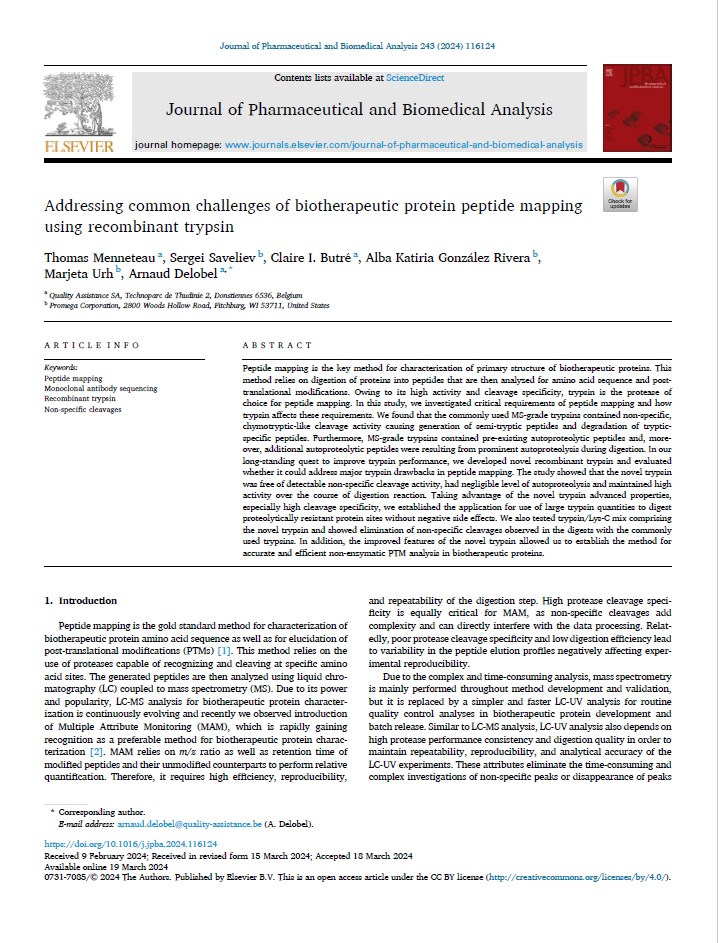Addressing common challenges of biotherapeutic protein peptide mapping using recombinant trypsin

Peptide mapping is the key method for characterization of primary structure of biotherapeutic proteins. This method relies on digestion of proteins into peptides that are then analyzed for amino acid sequence and posttranslational modifications. Owing to its high activity and cleavage specificity, trypsin is the protease of choice for peptide mapping.
In this study, we investigated critical requirements of peptide mapping and how trypsin affects these requirements. We found that the commonly used MS-grade trypsins contained non-specific, chymotryptic-like cleavage activity causing generation of semi-tryptic peptides and degradation of trypticspecific peptides. Furthermore, MS-grade trypsins contained pre-existing autoproteolytic peptides and, moreover, additional autoproteolytic peptides were resulting from prominent autoproteolysis during digestion.
In our long-standing quest to improve trypsin performance, we developed novel recombinant trypsin and evaluated whether it could address major trypsin drawbacks in peptide mapping.
The study showed that the novel trypsin was free of detectable non-specific cleavage activity, had negligible level of autoproteolysis and maintained high activity over the course of digestion reaction. Taking advantage of the novel trypsin advanced properties, especially high cleavage specificity, we established the application for use of large trypsin quantities to digest proteolytically resistant protein sites without negative side effects. We also tested trypsin/Lys-C mix comprising the novel trypsin and showed elimination of non-specific cleavages observed in the digests with the commonly used trypsins. In addition, the improved features of the novel trypsin allowed us to establish the method for accurate and efficient non-enzymatic PTM analysis in biotherapeutic proteins.